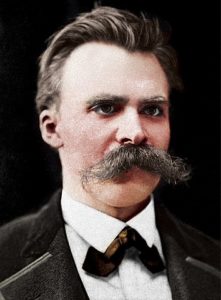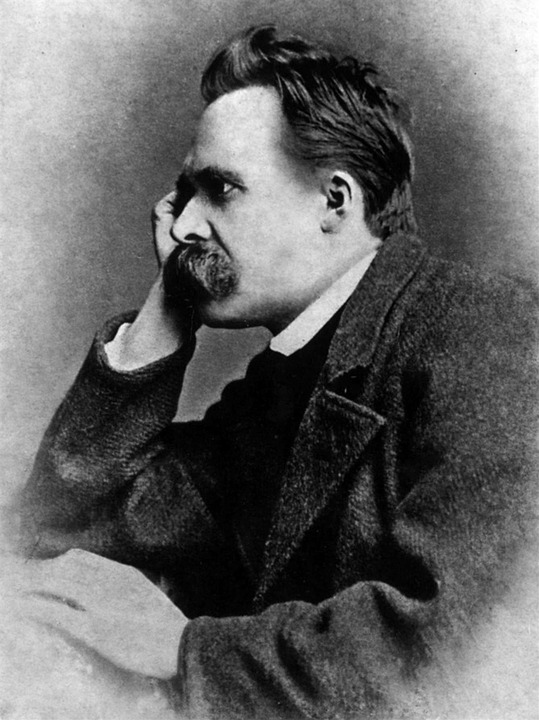God is dead, and I’m not feelin’ too good myself
When Friedrich Nietzsche told us that God was dead, circa 1880, some thought it was terrific news, including the great philosopher himself, because it meant more freedom for man, but most people were alarmed, for one reason because it meant more freedom for man.
Too much freedom leads to anarchy, the reasoning goes, but the plain and simple fact was, and is, that most people fear even a little freedom, for themselves most of all. “Liberty means responsibility,” said George Bernard Shaw. “That is why most men dread it.”
You could say that things started to go downhill long before 1880, however, probably about the time that single-celled organisms grew out of the theretofore lifeless primordial “soup” – and began to feed on one another. Maybe God, having set this particular ball in motion, and, being omniscient and all, and surveying the whole long, sordid narrative of life laid out before him, was aghast at what he’d done, and just up and died, out of sheer terror or remorse or shame.
Or maybe committed suicide, even.
The demise of a presumably well-intentioned God at about that time would account for the fact that things never have improved any, to speak of–that the creatures with the most exquisite and complex brain that we know about, for example, have put that instrument to use mostly in devising new ways of killing one another.
 It would also explain why, maybe, as our Earth hurtles monotonously through empty space in its endless elliptical orbit around a doomed star, no one seems to be at the controls. The pilot is dead, and apparently there’s no backup.
It would also explain why, maybe, as our Earth hurtles monotonously through empty space in its endless elliptical orbit around a doomed star, no one seems to be at the controls. The pilot is dead, and apparently there’s no backup.
So what now? Well, just as Nietzsche believed that the death of God could be a liberating notion, we could circle the wagons, put our heads together-whatever particular adage you prefer-and resolve to go forward on our own. Take command of the controls, to return to my original metaphor.
Responsibility, as Shaw pointed out, is the rub. Responsibility sometimes entails moving your own precious beliefs over on the shelf to make room for the beliefs of others. And the truth is that religion, and God, no matter how deeply and powerfully experienced or felt, are systems of beliefs, not sets of facts. Another truth is this bracing one: When we take responsibility for our lives and for the task of being human-we may find that we don’t need God in order to be moral.






